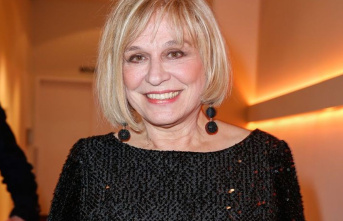In German supermarkets you can find shrimp from Vietnamese aquaculture, but neither herring nor cod from the German Baltic Sea coast. The former "bread fish", which essentially secured the livelihood of local fishermen, have long since become exotic in the trade. The decisions at EU level on maximum catches next week are unlikely to change that - at least not for the time being. In the longer term, however, the herring of the western Baltic Sea could overcome its exotic existence.
Until then, fish fans can get it, if at all, near the coast or directly on the quayside, like Hendrik Kern's in Boltenhagen near Wismar. The 34-year-old has been fishing since he was 16 - in the fifth generation. He belongs to a dying guild. Still, he says he's fine. "I can't complain because I only do self-promotion."
From cutter to customer
What he catches with his small gillnet cutter, he sells directly to the end customer. Among other things, Kern catches flatfish that are doing relatively well, including plaice or unquoted species such as flounder, dab or turbot. There are also garfish and lumpfish, for example. When it comes to herring, he is also affected by drastic catch restrictions. He is allowed to catch 100 kilograms of herring this year. Ten years ago it was about 100 times as much.
Since this year, cod can no longer be specifically caught in the western Baltic Sea and herring can only be caught with cutters under twelve meters in length and so-called "passive fishing gear", i.e. gillnets like the one Kern uses. According to a draft by the EU Commission for the coming year, nothing should change in the restrictions on herring and cod in the western Baltic Sea. Overfishing, over-fertilization and global warming have affected the stocks.
Herring only from small gillnet cutters
Christopher Zimmermann is head of the Thünen Institute for Baltic Sea Fisheries in Rostock and also advises the EU Commission within the framework of the International Council for the Exploration of the Sea (ICES). He expects that the exceptions for smaller gillnet cutters will remain in place for herring. For plaice, the Commission is proposing a lower catch increase than that recommended by ICES, as cod is by-catched in the plaice fishery. However, special networks should remedy this in the future.
According to Zimmermann, the Ukraine war is making it difficult to determine catch levels. In the past there have only been sporadic negotiations with Russia on the joint setting of quotas. "That has now come to a complete standstill. So ultimately there is no agreed maximum catch." He expects that the total catches will be a little too high compared to the stocks. The problem is even more serious in the Barents Sea because Russia has a much larger share of the catch here.
According to Zimmermann, fishing in the North Sea is better than in the Baltic Sea. There is light and shadow. "But overall you can get plenty of fish from the North Sea, managed sustainably. And the situation is much better than in the western Baltic Sea." The North Sea herring, for example, has problems with offspring. However, he is still MSC-certified. "Because there is a plan how to bring it back into the green."
The North Sea is doing a little better
The large retail chains also refer to the MSC seal when it comes to sustainable fish consumption. Karoline Schacht from the environmental organization WWF also calls it an orientation. It guarantees at least a minimum standard. The counterpart to fish from aquaculture is the ASC seal. The WWF also offers a shopping guide on its website. There are also differences per species depending on the fishing method and origin.
Even if fish is offered near the beach, it is by no means always of regional origin. "Of course there are shrimp rolls on the Baltic Sea," says Schacht, giving an example. But there are no such crabs there. And with regional origin, certain species such as the eel are taboo to prevent the species from becoming extinct.
The climate balance of fish
Advantages over meat from the country, for example in terms of the climate balance, would be clouded if the fish came from thousands of kilometers away - and the EU is the world's largest fish importer. Nevertheless, according to Zimmermann, one can roughly say: for every kilogram of beef that is not eaten, you can eat eight kilograms of farmed salmon - with the same environmental impact. That's why you need fishing.
The expert at least has the hope that at some point the herring from the western Baltic Sea could once again play a larger role on the market. There are "very first positive signs, but if possible you shouldn't trample on them immediately, but act very carefully now". For the current year, the catches in areas beyond the western Baltic Sea were low enough for the first time, but still affect the same stock.
The herring is doing a little better
According to current forecasts, it will take five to seven years for the stock to recover sufficiently. And even then, the yield will not be as great as it was 30 years ago, says Zimmermann. "Climate change is to blame for the difference, we can't change it." The warming of certain parts of the Baltic Sea leads to fewer offspring. In the case of cod from the western Baltic Sea, the connections are not yet known. "Unfortunately, the only thing we can do now is wait and see, and there are examples where this waiting and waiting lasted 25 years."
It remains to be seen how the shrinking German Baltic Sea coastal fisheries will fare by then. Kern, who is also an inland fisherman, wants to expand as early as next year and use a second cutter. He sometimes wishes people had a little more understanding for his craft. Sometimes they stood in front of his cutter and asked for currywurst and fries.







